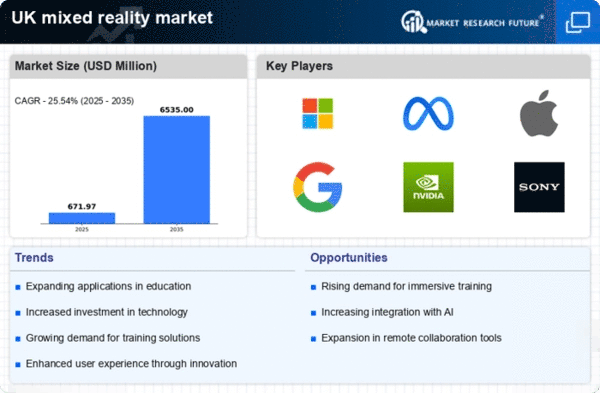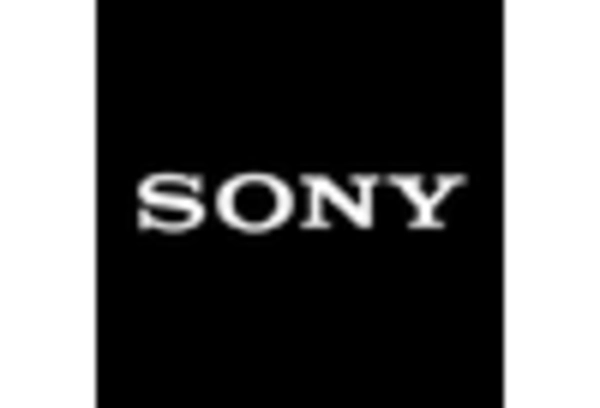Technological Advancements in Hardware
The mixed reality market in the UK is experiencing a surge due to rapid advancements in hardware technology. Innovations in headsets, sensors, and computing power are enhancing user experiences and making mixed reality applications more accessible. For instance, the introduction of lightweight, high-resolution headsets has improved comfort and usability, leading to increased adoption across various sectors. The market is projected to grow at a CAGR of approximately 30% over the next five years, driven by these technological improvements. As hardware becomes more sophisticated, the mixed reality market is likely to see a broader range of applications, from gaming to professional training, thereby expanding its reach and potential revenue streams.
Growing Interest in Training and Simulation
The mixed reality market is increasingly being leveraged for training and simulation purposes across various sectors, including manufacturing, aviation, and healthcare. This trend is driven by the need for effective training solutions that can provide immersive, hands-on experiences without the associated risks of real-world training. Companies are recognizing the value of mixed reality in enhancing learning outcomes and reducing training costs. The market for training applications within the mixed reality market is projected to grow significantly, with estimates suggesting a growth rate of approximately 35% over the next few years. This growing interest indicates a shift towards more innovative and effective training methodologies.
Rising Demand for Remote Collaboration Tools
The mixed reality market is witnessing a notable increase in demand for remote collaboration tools, particularly in the wake of evolving work environments. Businesses in the UK are increasingly adopting mixed reality solutions to facilitate virtual meetings and collaborative projects, enhancing productivity and engagement among remote teams. This trend is supported by a growing recognition of the benefits of immersive experiences in communication. According to recent data, the market for remote collaboration tools within the mixed reality market is expected to grow by over 25% in the next few years. This shift not only reflects changing workplace dynamics but also indicates a broader acceptance of mixed reality technologies in everyday business operations.
Expansion of Content Creation and Development
The expansion of content creation and development is a pivotal driver for the mixed reality market in the UK. As more developers and creators enter the space, the variety and quality of mixed reality content are improving, attracting a wider audience. This influx of creative talent is leading to innovative applications in entertainment, education, and marketing. The mixed reality market is likely to benefit from this trend, as diverse content offerings can cater to different consumer preferences and needs. Market analysts predict that the content creation segment will experience a growth rate of around 30% in the coming years, further solidifying the industry's position in the digital landscape.
Increased Investment in Research and Development
Investment in research and development (R&D) is a critical driver for the mixed reality market in the UK. Companies are allocating substantial resources to explore innovative applications and improve existing technologies. This focus on R&D is fostering a competitive landscape, where firms strive to differentiate their offerings. The UK government has also been supportive, providing funding and incentives for tech startups in the mixed reality market. As a result, the market is expected to see a compound annual growth rate (CAGR) of around 28% over the next five years, as new products and solutions emerge from these investments, further propelling the industry forward.

















